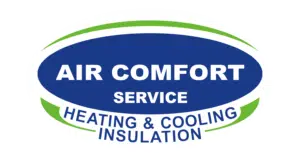Your HVAC System: What It Does and How to Maintain It
Now that summer vacation is almost over and school will be on the brain again, not only will students be back in the classroom and learning, but we’re taking adults back to school too!
As school environments are being inspected, it’s important not to overlook one of the most important systems, the Heating, Ventilation, and Air Conditioning system also known as HVAC.
Not only are we going to become familiar with how the HVAC system works, but we’ll also know how to make sure it has the proper maintenance and repair in order to ensure safety.
How the HVAC System Works
The HVAC system is something that’s never seen but is always there. The function of the system is to moderate the air temperature that circulates in a controlled environment.
The HVAC system is made up of various components, but they generally include a furnace, air conditioner, ductwork, and thermostat. We’re all too familiar with the thermostat and its function to control the temperature, so let’s get to know the other three components a little better to see how they all work together.
Within the furnace is a heat exchanger, which is what also contributes to heating up the temperature. As for creating cooler air temperature, this is where the air conditioner fits in, using coolant liquid to lower and cool the hot air.
The ductwork is one of the most important features because although the system may create the desired air temperature, it has to circulate somehow. The ductwork is what moves the controlled air temperature into the building.
How to Properly Maintain an HVAC System
After spending hours outside in the summer heat, we don’t want to come back to hot and stuffy classrooms for eight hours a day, right?
Now that we know how the HVAC system works, we need to familiarize with how to take care of the system.
The filters are recommended to be changed every month or six weeks to adequately regulate healthy and quality air.
The air ducts must also be inspected in order to make sure they do not have any leaks or damaged areas. Annually inspecting the HVAC system, its components, and the cleanliness of the system will ensure that it is functioning properly.
When to Repair the HVAC System
Are you familiar with what to pay attention to if your HVAC system is not working as it should? Here are a few indications to help you know when your system should be replaced:
- It’s consuming huge amounts of energy to cool your home
- Parts constantly need to be replaced
- The system makes loud noises
If you have asthma or if the air has been contaminated with pollen or other allergens, your allergic reactions can be triggered due to the contaminated air – not solely because of the weather!
While artifacts and collectibles are cherished in old age, the HVAC system and its components should not be. If there are several parts that need replacing, it may be cheaper and overall beneficial to buy a whole new HVAC system than individually replacing the failed parts.
Lastly, if the HVAC system is making loud and unusual clanking noises, this is another indicator that the system may have a malfunction. It’s also crucial to make sure that your HVAC system is the appropriate size for where it’s being installed in order for the system to circulate air throughout the building efficiently.
Safety Should Always Be A Priority
If you’ve noticed your system or your health are falling into any of these categories, we want to state that this is not normal for a properly functioning HVAC system!
If you find yourself constantly installing parts of your HVAC system, chances are, you’re spending even more money and investing more time trying to keep an old system alive when a new one could offer you and your family more benefits.
If you’d like to know more about your options or need help choosing your new air conditioner, look no further than Air Comfort Services, Inc.
